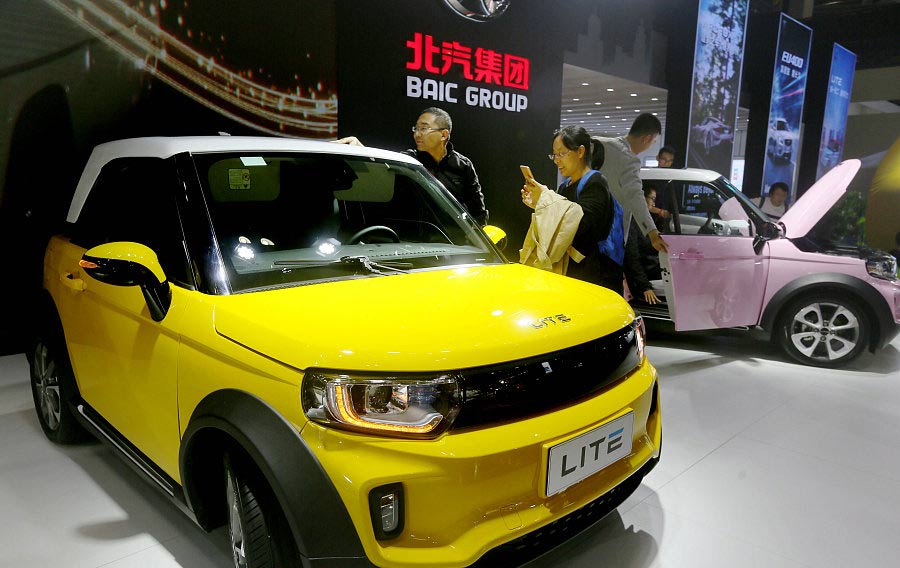'Make-or-break' opportunities in electric auto market, says BAIC Group

New energy cars and AI are presenting make-or-break opportunities for the automotive industry, said Xu Heyi, chairman of the State-owned Beijing Automotive Group Co, who warned that carmakers that do not seize them may end up losing it all.
The government has released a series of policies to stimulate the growth of new energy cars, and there will be no other way to go if Chinese carmakers do not work on such vehicles, said Xu at a recent media roundtable.
China is the world's largest market for new energy autos, with around 1.7 million such vehicles on its road as of the end of 2017, according to statistics from the China Association of Automobile Manufacturers.
Xu said his group has set a goal to sell 650,000 new energy cars in 2020, with 500,000 of them from its own brands. The figure is expected to rise to 1.5 million by 2025, of which 300,000 will be exported.
BAIC Group is also one of the first traditional carmakers to release plans to phase out conventional cars under its brand. It is planning to stop its conventional car sales in Beijing by 2020 and phase them out nationwide by 2025.
In addition to its own BAIC-branded cars, the group also has manufacturing joint ventures with South Korean automaker Hyundai and Germany's Daimler AG, owner of the Mercedes-Benz brand.
BAIC Group and Daimler have reached a deal to invest a total of 5 billion yuan ($790.6 million) to localize electric Mercedes-Benz cars in Beijing. The group was one of the early birds to develop new energy cars, and its arm BJEV is now one of the most popular new energy car makers in the country.
Statistics show that BJEV sold a total of 103,199 electric vehicles in 2017, a year-on-year growth of 98 percent, becoming the country's largest electric carmaker by sales.
To support of its new energy vehicles, BJEV has installed 46,000 public charging poles and 32,000 private ones.
BJEV, which is valued at $4.5 billion, is also expected to become the first State-owned new energy carmaker to go public, according to Reuters.
An analyst said it is a good time for BJEV become listed in A-shares right now as investors have very positive views on electric car development in China going forward, with all markets convinced on an electrified future.
BAIC Group is also building a new energy car technology and innovation center in Beijing in cooperation with a number of institutions, including Tsinghua University and battery maker CATL.
The facility is expected to build an open platform that will better mobilize global innovative resources and facilitate cooperation among companies, universities, research facilities and users.
In terms of AI, BAIC Group is teaming up with Baidu, China's largest search engine operator, to work on autonomous cars.
As the market develops, it is something inevitable that manufacturing and AI become integrated, Xu said.
Xu said BAIC Group will roll out cars with Level 2, or hands-off, functions in 2018. Cars that enable drivers to take their eyes off the road will be on the market in 2019 and those that feature mind-off functions will be unveiled in 2022.

